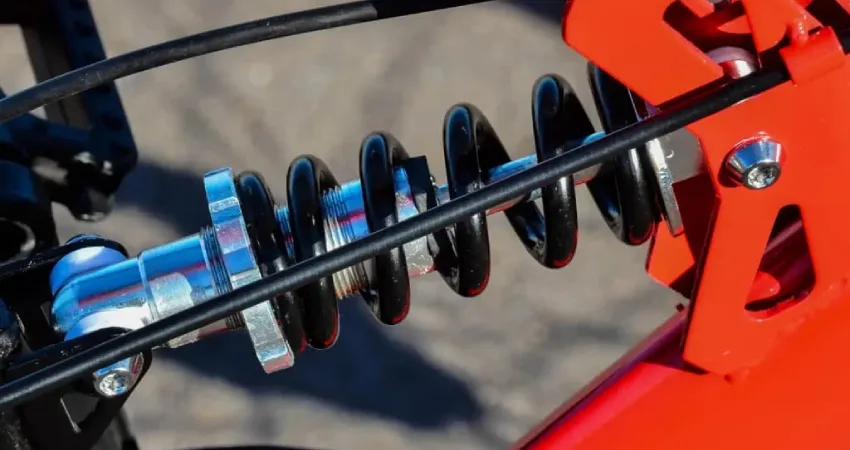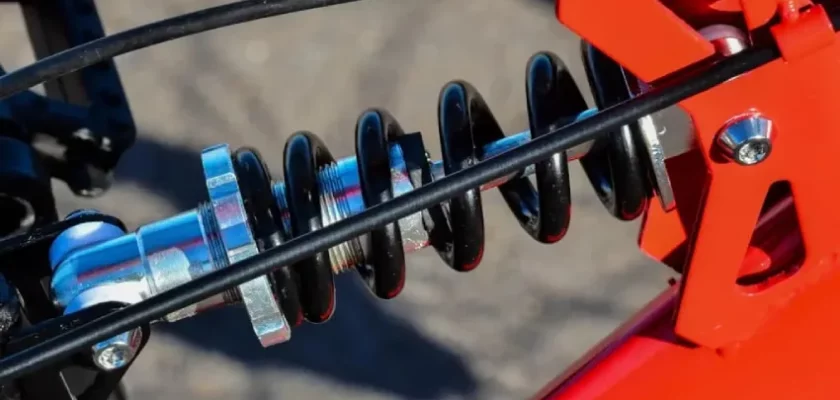Do you need suspension on a hybrid bike? It’s a common question among cycling enthusiasts and beginners alike. Well, the answer isn’t as straightforward as a simple yes or no.
Suspension is designed to absorb shock and provide a smoother ride, typically found on mountain bikes for tackling rough terrains. But when it comes to hybrid bikes, which are designed for a mix of on-road and off-road riding, the need for suspension becomes a topic of debate.
Hybrid bikes blend the best features of road and mountain bikes, offering versatility and comfort. With their lightweight frames and narrow tires, they are great for commuting or leisurely rides around the city.
However, if you plan to venture off-road occasionally, suspension might come in handy to handle bumps, gravel, or uneven surfaces. That being said, not all hybrid bikes come equipped with suspension, and there are advantages and disadvantages to consider.
So, let’s dive deeper into the suspension debate and explore whether you truly need it on a hybrid bike.
Do You Need Suspension on a Hybrid Bike?

When it comes to choosing a hybrid bike, one common question that arises is whether or not suspension is necessary. Hybrid bikes are designed to offer versatility and comfort, making them suitable for various terrains. Suspension, typically found on mountain bikes, absorbs shocks and impacts, providing a smoother ride. However, not all hybrid bikes come equipped with suspension.
The Benefits of Suspension on a Hybrid Bike
Suspension on a bike can be highly advantageous, especially if you frequently encounter rough or bumpy terrains. Here are some of the key benefits of having suspension on a hybrid bike:
- Improved comfort: Suspension helps absorb vibrations and shocks, providing a smoother and more comfortable ride, particularly on uneven surfaces.
- Better traction: Suspension allows the bike’s wheels to maintain contact with the ground, resulting in improved traction. This can be particularly beneficial when riding on loose or challenging terrains.
- Enhanced control: Suspension helps in maintaining better control over the bike, especially when descending steep hills or navigating through obstacles. It minimizes the impact of bumps, giving you greater stability and confidence.
- Reduced fatigue: With a suspension system, the body doesn’t have to endure as much impact, reducing fatigue and allowing you to ride longer without feeling excessive strain.
The Drawbacks of Suspension on a Hybrid Bike
While suspension can be beneficial, it also comes with some downsides that need to be considered. Here are a few disadvantages of having suspension on a hybrid bike:
- Added weight: Suspension components add extra weight to the bike, making it slightly heavier. This can affect the bike’s overall speed and efficiency, particularly if you primarily ride on smooth and paved surfaces.
- Reduced efficiency: As suspension absorbs energy, it can result in power loss when pedaling. This loss of efficiency can be noticeable, especially on flat grounds or when climbing hills.
- Maintenance: Suspension systems require regular maintenance and servicing to ensure optimal performance. This adds an ongoing cost and time commitment when compared to bikes without suspension.
- Increased cost: Hybrid bikes with suspension tend to be more expensive than their rigid counterparts. If you are on a tight budget, opting for a bike without suspension can save you some money.
Determining the Need for Suspension
Now that we have covered the benefits and drawbacks, you might be wondering whether or not you need suspension on your hybrid bike. Here are a few factors to consider:
1. Terrain
Think about the type of terrain you will predominantly ride on. If you often encounter rough roads, trails, or unpaved paths, having suspension can significantly improve your comfort and control. However, if you primarily ride on smooth and well-maintained surfaces, suspension may not be necessary.
2. Riding Style
Consider your riding style and preferences. If you enjoy long rides covering various terrains, including off-road sections, suspension can enhance your overall experience. On the other hand, if you tend to stick to urban areas and prefer speed over comfort, a rigid hybrid bike may suit you better.
3. Personal Comfort
Your personal comfort is crucial when selecting a bike. Some individuals may have specific physical conditions, such as back problems, that benefit from the added shock absorption provided by suspension. If you prioritize a smooth and pain-free ride, suspension can greatly contribute to your comfort.
4. Budget
Take into account your budgetary constraints. Hybrid bikes with suspension typically cost more than those without. If cost is a significant factor, it may be more reasonable to invest in a bike without suspension and allocate the savings to other cycling accessories or upgrades.
Consider these factors and weigh the advantages and disadvantages to determine whether or not you need suspension on your hybrid bike. Consulting with knowledgeable professionals at local bike shops can also provide valuable insights and recommendations based on your specific needs and riding conditions.
Remember, if you do opt for a hybrid bike without suspension, it doesn’t mean you have to compromise on comfort entirely. You can compensate for the lack of suspension by selecting wider tires with lower pressure, which will provide some level of shock absorption.
Frequently Asked Questions
1. Should a hybrid bike have suspension?
A hybrid bike does not necessarily need suspension, as it depends on the type of terrain you ride on. If you mostly ride on smooth roads or bike paths, a rigid frame will offer better efficiency. However, if you plan to venture off-road or encounter rough terrain, a bike with front suspension may be more suitable.
2. What are the benefits of having suspension on a hybrid bike?
Suspension on a hybrid bike helps absorb shocks and vibrations, enhancing overall comfort during your ride. It can also provide better control and stability, particularly when navigating uneven surfaces or off-road trails.
3. Are there any drawbacks to having suspension on a hybrid bike?
While suspension offers benefits, it also adds weight and can reduce pedaling efficiency, especially on flat, smooth surfaces. A fully-suspended hybrid bike may also be more expensive compared to a rigid one. Consider your riding preferences before deciding if suspension is necessary for you.
4. Can I upgrade a non-suspended hybrid bike with suspension?
In some cases, it may be possible to upgrade your non-suspended hybrid bike with front suspension forks. However, this depends on the design and compatibility of your bike frame. It’s best to consult with a professional bike mechanic to determine if such an upgrade is feasible for your specific bike model.
5. What other factors should I consider when choosing a hybrid bike with suspension?
Aside from suspension, consider the bike’s frame material, tire width, and gearing systems to ensure it suits your overall riding style and terrain. Additionally, test ride different bikes to evaluate how they feel and handle, as personal preference plays an important role in choosing the right hybrid bike.
Final Thoughts
In conclusion, the question of whether you need suspension on a hybrid bike depends on your specific needs and preferences. Suspension can provide added comfort and control when riding on rough terrain or uneven surfaces. However, it also adds weight and can increase the cost of the bike.
If you primarily ride on smooth roads or bike paths, a hybrid bike without suspension may be more than sufficient. On the other hand, if you enjoy off-road adventures or encounter bumpy surfaces frequently, having suspension can greatly enhance your riding experience.
Ultimately, the decision to include suspension on a hybrid bike should be based on your individual riding style and the types of terrain you anticipate encountering.

